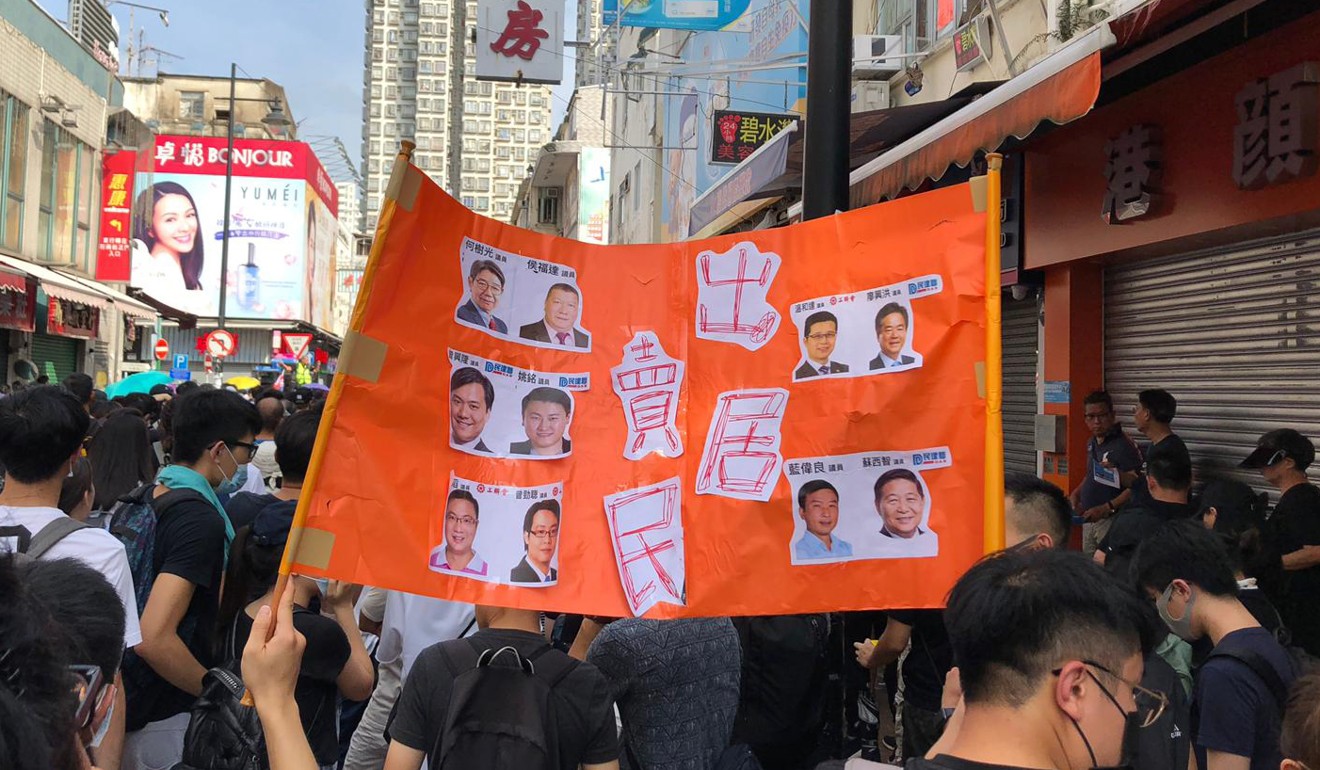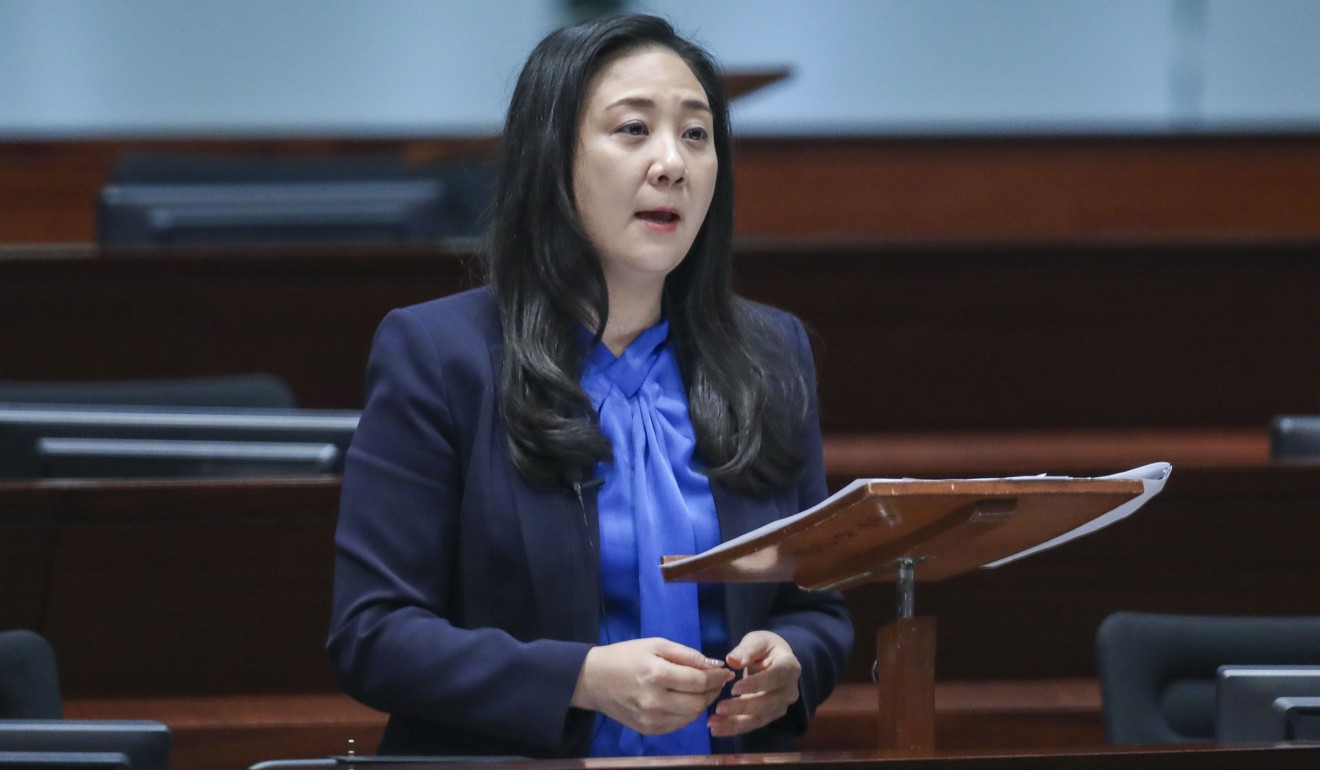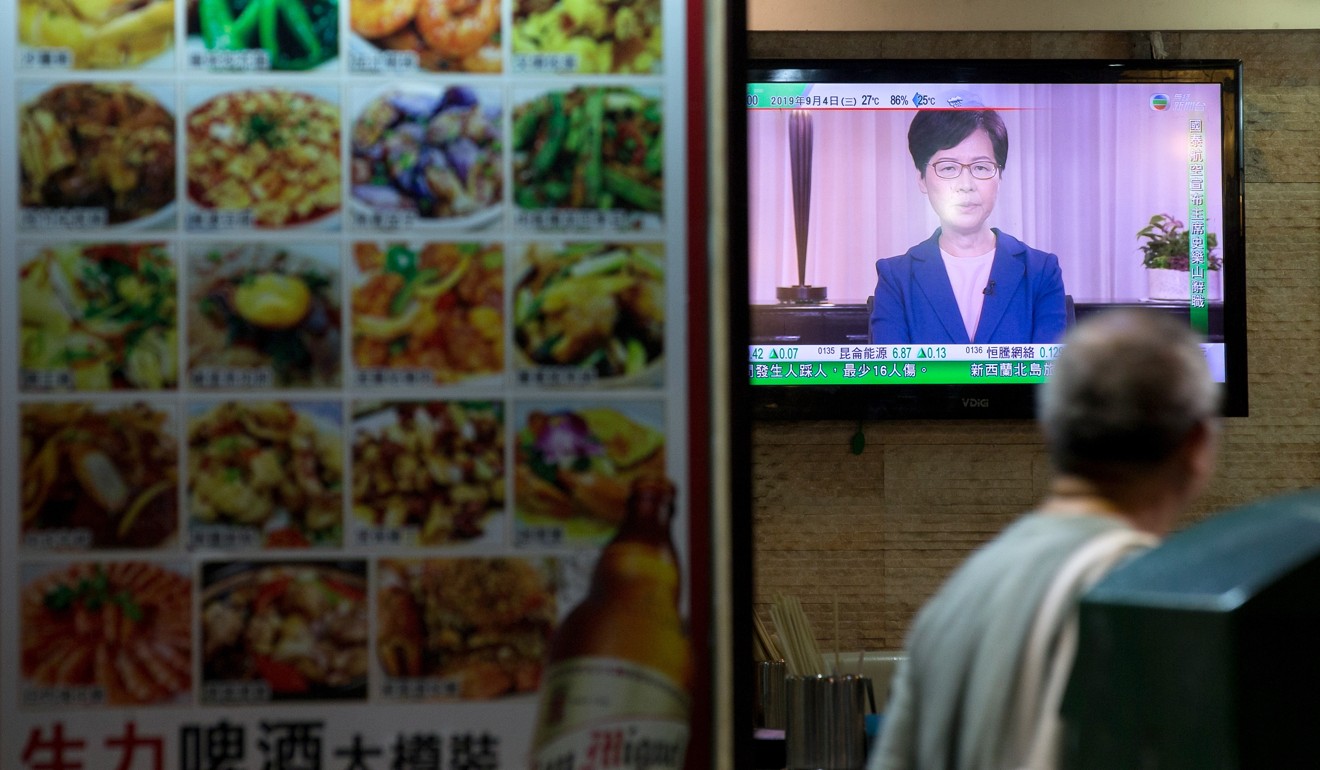
Hong Kong’s pro-government lawmakers brace for impact in district council elections following Carrie Lam’s withdrawal of extradition bill
- Elizabeth Quat, from Democratic Alliance for Betterment and Progress of Hong Kong, says disappointed voters may show their anger at the polls
- Other pro-establishment lawmakers say it is hard to assess impact of Lam’s sudden climbdown this far out from November elections

A day after Hong Kong leader Carrie Lam Cheng Yuet-ngor’s decision to formally withdraw the extradition bill, a pro-government lawmaker has warned of voters punishing the camp in the coming elections, but other members insist it is too early to panic.
Elizabeth Quat, from the leading pro-establishment party the Democratic Alliance for Betterment and Progress of Hong Kong (DAB), said supporters who had all along backed the bill were particularly disappointed.
“They think the government has yielded to violence. We fear these people might be so disappointed they will not come out to vote to show their discontent,” Quat said.
Lam announced on Wednesday she would formally withdraw the unpopular extradition bill that had sparked three months of turmoil in the city.

Beijing loyalists had thrown their weight behind the bill, which would have allowed the transfer of criminal suspects to mainland China and other jurisdictions with which Hong Kong lacked an arrangement.
Quat said almost half of the calls received by her office since Wednesday had been people registering their unhappiness at the U-turn, while others said the concession had come too late.
“It could be fatal in the case of the district council elections because it adopts a first-past-the-post system,” she said.
“I don’t think the chief executive considered the possible impact on us when she contemplated the concession.

“Although it is too early to say at this stage that we could see a landslide defeat, it has happened before,” she said.
Quat was referring to the 2003 district council elections which were held four months after 500,000 people took to the streets to oppose a proposed national security legislation – the Article 23 bill.
In that election, the party which was then known as the Democratic Alliance for the Betterment of Hong Kong suffered a humiliating defeat, securing just 62 of the 206 seats it contested. The Democratic Party won 95 of 120 seats it contested.
Quat’s party merged with the Hong Kong Progressive Alliance in 2005 to form Hong Kong’s largest pro-government party, which still abbreviated to the DAB.
Candidates from the pro-establishment camp won more than 790,000 votes in the last district council elections in 2015, much higher than the 580,000 or so clinched by the pan-democrats.

But some of Quat’s fellow pro-establishment lawmakers said it was hard to assess the impact of Lam’s sudden climbdown on the fortunes of government-friendly candidates in November’s district council elections.
DAB vice-chairman and executive councillor Horace Cheung Kwok-kwan felt any potential losses could be limited if the party reached out to its supporters.
“We believe the withdrawal will create room for rational dialogue and reconciliation in society,” Cheung said.
“We need to go to districts to explain the positive impact of the government’s decision. I don’t think there will be a substantial number of supporters who choose not to vote for us.”
Michael Luk Chung-hung, a lawmaker from pro-Beijing Federation of Trade Unions, said it was too early to panic.
“It’s undeniable we will face hard times in November but it is difficult to make a scientific assessment at this stage,” Luk said.
New People’s Party legislator Regina Ip Lau Suk-yee was more optimistic. She believed her party, whose supporters were mainly upper or upper-middle class, would not see a drop in support.
“My Facebook likes have actually increased in recent months. I supported the bill and I presented my reasons. People see that it is a rational decision,” Ip said.
Li Xiaobing, an expert on Beijing’s policies on Hong Kong at Nankai University in Tianjin, said he was not optimistic the withdrawal of the bill would mitigate the negative impact on the fortunes of the pro-establishment camp.
“It has put the pro-establishment camp in a difficult and awkward position,” he said.
But Tian Feilong, associate professor at Beihang University’s Law School in Beijing, believed the camp’s prospects would improve because the withdrawal would ease tensions in society.
Professor Ma Ngok, a political scientist at Chinese University, did not expect a huge impact on the pro-establishment parties in the elections.
“Their diehard supporters will vote for them anyway,” he said.